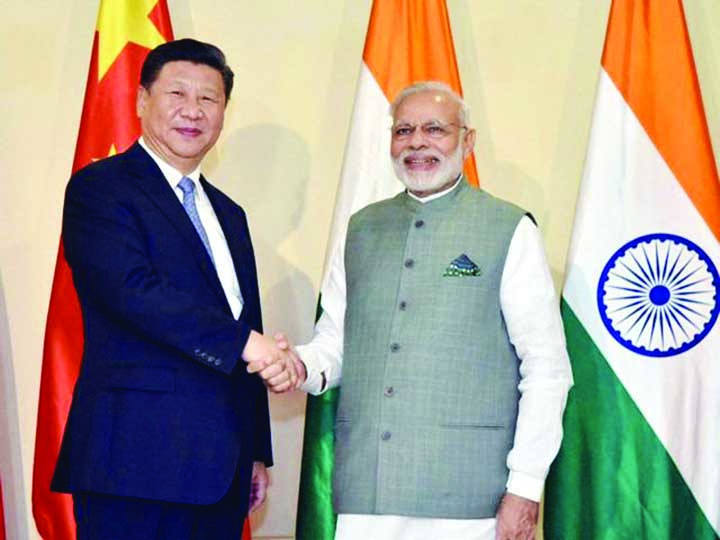
Dawn.com, New Delhi :
China said on Thursday that the strategic dialogue with India was of positive significance to ties and that extensive agreements were reached. It however, skirted any reference to the persisting differences over issues like India’s Nuclear Suppliers Group (NSG) bid and efforts to get Jaish-e-Mohammed (JeM) chief Masood Azhar banned by the UN.
“The dialogue has reached the goal as expected and is of positive significance to the bilateral relations,” Chinese Foreign Ministry Spokesman Geng Shuang told a media briefing in Beijing, according to reports in New Delhi.
The reports centred on China’s assessment of Indian Foreign Secretary S Jaishankar’s talks with Chinese officials, which included the first round of the upgraded strategic dialogue on Wednesday.
“Our overall impression is that this strategic dialogue was held in a friendly atmosphere. The two sides held [an] in-depth and comprehensive exchange of views and reached extensive agreements,” he said, without elaborating.
The two sides had an in-depth and comprehensive exchange of views on international situation, domestic and foreign policies, bilateral relations and other regional and international issues of mutual interest and reached extensive consensus, Geng said.
He, however, made no reference to the persisting differences over China blocking India’s admission into the NSG and efforts to get JeM chief Azhar banned by the UN, India’s Business Standard newspaper said.
In his briefing to the media after the dialogue on Wednesday, Jaishankar had said both the issues figured in the talks.
On the Chinese Foreign Ministry calling for “solid evidence” to get Azhar banned, Jaishankar had said: “In the case of Azhar, Jaish itself is proscribed under 1267. So the proof is in [the] 1267 Committee action. In this case what he has done, extent of his actions are well-documented.”
He had also said the “burden of proof” was not on India.
“On the NSG issue, the Chinese side underlined that they are open to India’s application for membership. They have their view of procedures and processes. These were different from where we are at the moment and most of the group is at the moment,” Jaishankar had said.
Without going into those issues, Geng said the two sides shared the view that with similar national conditions and the stage of objective development, China and India have extensive converging interests and huge potential for cooperation.
“Sound and steady development of China-India relations is in the fundamental interest of the two countries and the peoples. The two sides agreed to maintain the momentum of the bilateral relations in the spirit of the agreements of the two leaders, work out a good programme for 2017 bilateral exchanges at various levels, advance practical cooperation, strengthen cooperation and coordination on international issues,” Geng said.
Meanwhile, Beijing’s and New Delhi’s disputes on terror from Pakistan and India getting NSG membership “will persist” said China’s Global Times – which gets its cue from the Communist Party of China.
China says those two issues are the reason frictions between China and India “are not bilateral but multilateral”.

